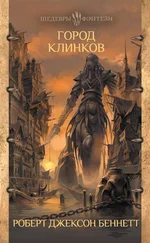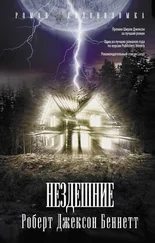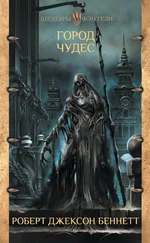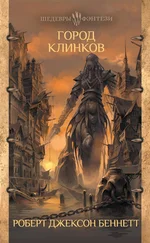“Then where did this Silicio come from, sir?” asked Berenice.
“The practice is illegal in Tevanne ,” said Orso. “But the laws of Tevanne, as we are all well aware, are weak and restricted. Intentionally so. None of them extend to the plantations. The policy of Tevanne has always been that, provided we get our sugar, coffee, and whatever else on time, we couldn’t care less about what goes on out there. So…if it was communicated to a plantation that, if they accommodated a handful of scrivers from Tevanne, and supplied them with… specimens to experiment on…”
“Then they would receive a bonus, or an amenable contract, or some kind of lucrative reward,” said Gregor dourly, “from one of the merchant houses.”
“On matters completely unrelated to these visiting scrivers,” said Orso. “It all looks aboveboard, from a distance.”
“But why?” said Berenice. “Why experiment on humans at all, sir? We’re successful with our devices — why not focus on those?”
“Think, Berenice,” said Orso. “Imagine if you’d lost an arm, or a leg, or were dying from some plague. Imagine if someone could develop a sigil string that could cure you, or regrow a limb, or…”
“Or keep you alive for much, much longer,” said Berenice softly. “They could scrive you so that you could cheat death itself.”
“Or they could scrive a soldier’s mind,” said Gregor. “Make them fearless. Make it so they don’t value their own lives. Make them do despicable things, and then forget they’d ever done them. Or make them bigger, stronger, faster than all other soldiers…”
“Or scrive slaves to thoughtlessly do their masters’ bidding,” said Berenice, glancing at Sancia.
“The possibilities,” said Orso, “are beyond count.”
“And this is what Silicio was?” asked Gregor. “An experiment run by a merchant house?”
“I’d only heard rumors of it. Some plantation, out in the Durazzo, where people were still attempting the forbidden arts. I heard it moved around, from island to island to make it harder to trace. But a few years ago, news came of a disaster on the island of Silicio. A whole plantation house burned to the ground. All the slaves were running wild. And among those killed in the blaze were a number of Tevanni scrivers, though no one could quite explain what they’d been doing there.”
They looked at Sancia, who was sitting completely still now, her face totally blank of all expression.
“Which house was behind this experiment?” Gregor asked.
“Oh, it probably wasn’t just one merchant house,” said Orso. “If one was trying to scrive humans, they all were. It might still be going on, for all I know. Or perhaps Silicio scared them all off.”
“Even…” Gregor furrowed his brow. “Even Dandolo Chartered?”
“Oh, Captain…How many merchant houses have been doomed because they were too slow to bring a new design to market? How many careers have ended because a competitor found a way to make better wares?”
“But to do that …” said Berenice. “To…to people …”
Suddenly Sancia laughed. “God. God! As if that was any worse! As if that was any worse than the other things happening out there!”
They looked at her, uneasy.
“What do you mean?” asked Berenice.
“Don’t…don’t you understand what the plantations are ?” said Sancia. “Think of it. Think of trying to control an island where the slaves outnumber you eight to one. How would you keep them in line? What would you do to keep them docile? What sort of tortures would you apply to those who lashed out? If…If any of you could understand the things I’ve seen…”
“Do they really?” said Berenice. “Then…then why do we allow the plantations to exist?”
Orso shrugged. “Because we’re stupid, and lazy. After the first stage of the Enlightenment Wars — which was what, twenty or thirty years ago? — Tevanne had expanded and exhausted itself. It needed cheap grain, cheap resources, and it had a lot of captives on hand. It was to be a short-term fix — but then we got dependent on it. And it just keeps getting worse and worse.”
Sancia shook her head. “Scriving the human body…those horrors are nothing, nothing , compared to all the other horrors that make the islands run. And if I had the chance, I’d…I’d do it all over again.”
Gregor looked at her. “Sancia…How did Silicio burn?”
She was silent for a long while. “It…it burned,” she said, “because I set it alight.”
She started speaking.
They’d brought her to the big house behind the plantation, then down to the basement, down to where that… place was. She hadn’t even known the word for it. Mortuary? Laboratory? Some cross in between? Sancia hadn’t understood. She’d just smelled the alcohol, looked at the drawings and illustrations on the wall, and all those plates with the strange signs written on them; and she’d remembered the wagon that left the house every morning, reeking and followed by flies; and she’d known in an instant that she wasn’t getting out of there alive.
They’d forced her to drink a sedative — a powerful brandy of some kind, awful and putrid. It’d made her brain muddy and slow, but it didn’t kill the pain that would come later. Not really.
They’d cut off all her hair and shaved her pate with a razor. She remembered blinking blood out of her eyes. Then they’d dropped her down on the table, tied her down, and the one-eyed scriver had wiped her skull with alcohol — how it burned, how it burned— and then…
“Desperate times,” the one-eyed scriver had sighed, picking up a knife, “do call for desperate measures. But don’t we have the right to be unorthodox, my dear?” He’d smiled at her, a simpering expression. “Don’t we?”
And then he’d cut her head open.
Sancia had no words for the sensation. No words for the feeling of having your scalp slashed open and peeled back like the skin of an orange. No words for feeling him measure the bend of your skull, and listening to him tap-tap the plate into shape. No words for suddenly feeling those screws, those horrid screws biting into you, the gritty, grinding feeling as they bored into your skull, and then, and then…
Things had gone black.
She’d died. She’d been sure of it, at the time. There’d been just nothing. But then she’d felt someone…
Someone lying on top of her. Felt their warmth. Felt them bleeding.
It’d taken her a long time to realize she was feeling herself.
She’d been feeling her own body, lying on a dark stone floor. Only she’d been feeling herself from the perspective of the floor. She’d become the floor, just by touching it.
In the dark, alone, young Sancia had awoken and done her best to re-collect her sanity. Her skull had screamed and shrieked with pain — one whole side was swollen and sticky and bristly with stitches — but she’d realized then, alone, blind, that she was perhaps becoming something else , like a moth struggling to fight its way out of its pupa.
There had been chains around her wrists. A lock. And because of what she’d become, she’d felt she was the chains, she was the lock — and so she’d known how to pick it, of course, using a shred of wood she’d pulled off the wall.
Читать дальше
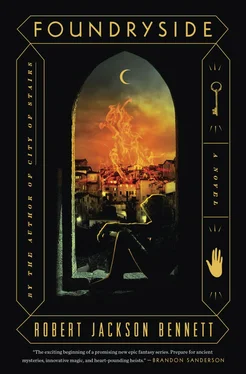


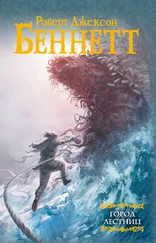


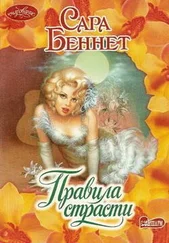

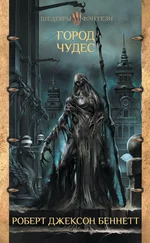
![Роберт Беннет - Город чудес [litres]](/books/405553/robert-bennet-gorod-chudes-litres-thumb.webp)
